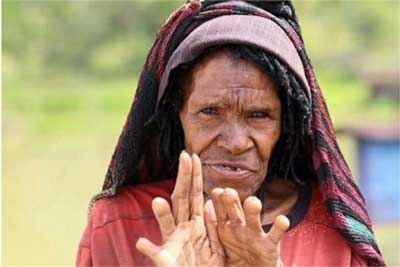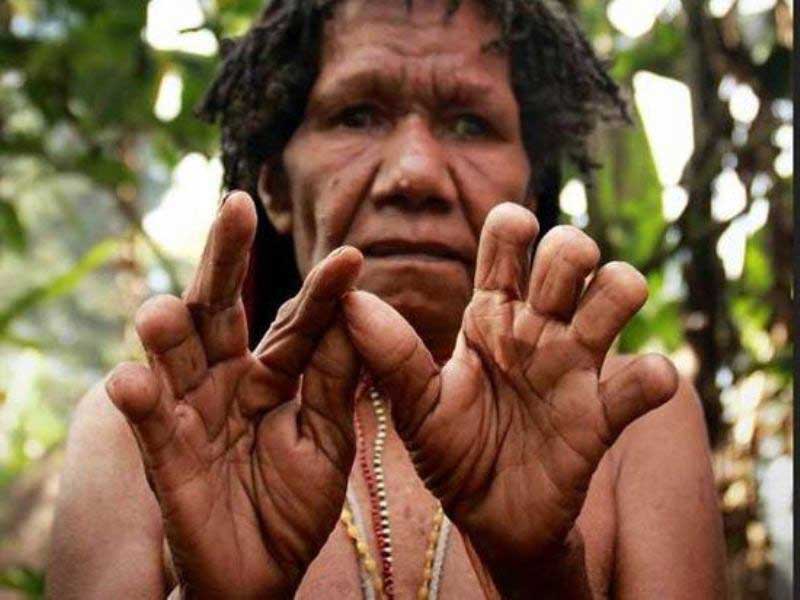
Finger cutting, or Ikipalin, is a weird practice to display grief and mourning, followed by the Dani (or Ndani) tribe, inhabitants of the fertile lands of the Baliem Valley in the Western New Guinea. As and when a member in the family passes away, the nearest relative or relatives of the deceased cut off the upper part of their finger or sometimes multiple fingers to exhibit their grief and gloom at funeral ceremonies. But, that is not the end of it.
Apart from the inevitable emotional grief and the consequent amputation, they also smear their faces with ashes and clay, as an expression of sorrow and misery. The tribe believes that by practicing the ritual they would satisfy the ancestral ghosts, which would otherwise remain in the village in the lingering spiritual turmoil. To keep restless spirits at bay, they offer their amputated fingers as a form of sacrifice.

Though some older men in the tribe participate in Ikipalin, typically the ritual is specific to the woman population of the Dani tribe and though nearly every Dani girl loses several fingers, as a woman she does a wide range of work. Apart from the older women, the practice carries all the way down to even the baby females, who also have the tips of their fingers bitten off by their mothers.


The amputation is done by first tying a piece of string tightly around the upper half of the finger for about 30 minutes to stop the blood circulation and make it numb. After that, to break the phalanx and amputate the upper section of a finger, small stone blades with braided grip are used and after the removal, the open sores are cauterized to prevent bleeding and form a newly callused fingertip. The severed part of the finger is then burnt to ashes and the ashes are saved in a special pot for burial or to be stored in the amputee's home, much like a person's ashes after cremation.
Though the weird practice has been banned in New Guinea, there are lots of older women in the community who mutilated fingertips.